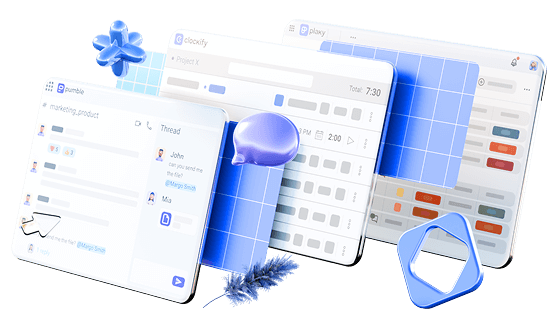Is AI here to replace us or is it going to revolutionize the way we work and improve our lives?
In episode 2 of Future of Work Talks, we’ve discussed the impact of AI on the future of work with:
- Jim Kalbach, Chief Evangelist at MURAL and noted author,
- Iwo Szapar, Future work expert and Founder of Remote-how, and
- Jermaine L. Murray, Career Coach and Tech Recruiter at JupiterHR.
Our panelists expressed their thoughts on AI’s influence on both employers and employees and how both parties can make the most of the latest technologies. Moreover, they shared their experiences with AI and how they’re benefiting from the latest technologies.
Here are the key episode takeaways about AI, common fears people have about it, and how it will affect the way we work.
Embrace AI instead of fearing it
Since the emergence of AI, the biggest debate has revolved around its potential to replace employees and specific job positions.
Kalbach believes we shouldn’t be afraid of AI replacing us as “human imagination is not going to be replaced any time soon.”
None of our panelists are afraid of AI replacing them and are embracing it with open arms instead. That’s because they believe AI complements their work and allows them to focus their energy on things that matter.
For Szapar, AI is an even bigger innovation than the Internet: “Internet democratized access to information, and AI is democratizing access to intelligence.”
Szapar adds that AI offers endless possibilities and opens a completely new chapter in enhancing existing processes and productivity.
For Murray, approaching and assessing AI with critical thinking is key. This means exploring ways technology impacts our value in the workplace.
He also believes that a good worker who’s willing to adapt to new technologies doesn’t have anything to worry about. On the other hand, low and mid-performers will always worry they’re going to be replaced – whether by AI or a better-performing worker.
Thus, instead of fearing AI, employees should find ways to benefit from it and make mundane tasks more efficient.
Our panelists even believe the right use of AI can elevate work-life balance and even lead us on a path of a 4-day workweek by speeding up time-consuming processes and offering ideas during writer’s block.
Adapt or die out
According to our panelists, companies that refuse to adapt to the latest technologies will likely face downfall and miss out on an amazing opportunity to make their operations easier.
Murray notes that adapting to the new now is crucial for employers as “there’s a level of dangerous arrogance to assume that you don’t have to adapt to the changing world around you.”
For company leaders who aren’t sure where to start, Szapar suggests picking employees’ brains. Companies could bring people together by organizing hackathons or brainstorming sessions and listening to everybody’s ideas and inputs.
Together, they could identify bottlenecks and find ways to increase operational efficiency. This way, leaders will not only gather great ideas but also create an environment in which AI isn’t feared but embraced.
Reskill instead of replace
Our panelists believe that the biggest danger of AI is overestimating and misinterpreting its abilities. They’re concerned employers could wrongly assume AI can replace a portion of their workforce and save them money on salaries.
Instead, Kalbach and Murray advise employers to focus on skill recalibration. AI could help improve employee experience and allow them to spend their efforts on obtaining new and useful skills instead of replacing employees overall.
Furthermore, Kalbach notes that “it’s about the employees and it’s also about your customers.” He warns employers not to entrust their brands and customer experience to AI, as that could increase frustration within their customer base.
Human perspective and relatability take the reins
AI’s growing relevance doesn’t automatically reduce the value of human touch. As our panelists highlight, human perspective and relatability will always come first, even once AI reaches the level of sophistication it aspires to.
Whether companies should look into AI and try to adapt isn’t a debate anymore. AI is here to stay and the ones who are trying to push the old ways will be left on the sidelines.
As Murray explains, if history has taught us one thing, it’s that the only way to thrive is to adapt:

“That’s what history has always been — a new technology is introduced and the ones who can see it for what it is are the ones that shape and change the history, and the ones that aren’t are left on the sidelines wondering ‘what if’.”
For more expert insights about the future of work, subscribe to our channel and check out the Future of Work Talks playlist.
How we reviewed this post: Our writers & editors monitor the posts and update them when new information becomes available, to keep them fresh and relevant.



